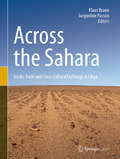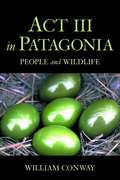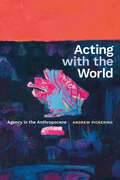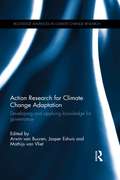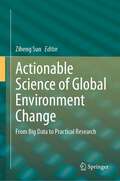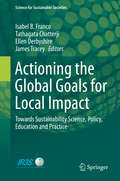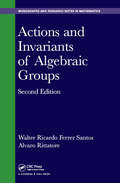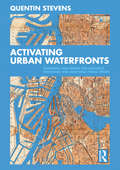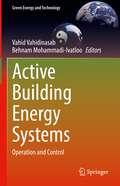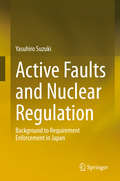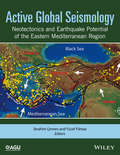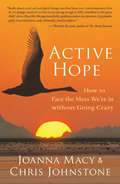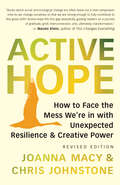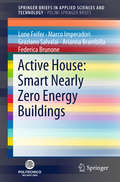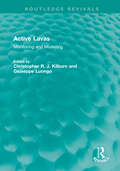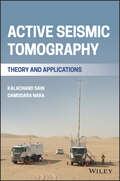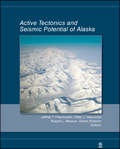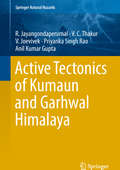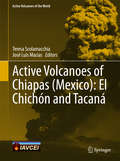- Table View
- List View
Across the Sahara: Tracks, Trade and Cross-Cultural Exchange in Libya
by Klaus Braun Jacqueline PassonThis open access book provides a multi-perspective approach to the caravan trade in the Sahara during the 19th century. Based on travelogues from European travelers, recently found Arab sources, historical maps and results from several expeditions, the book gives an overview of the historical periods of the caravan trade as well as detailed information about the infrastructure which was necessary to establish those trade networks. Included are a variety of unique historical and recent maps as well as remote sensing images of the important trade routes and the corresponding historic oases. To give a deeper understanding of how those trading networks work, aspects such as culturally influenced concepts of spatial orientation are discussed. The book aims to be a useful reference for the caravan trade in the Sahara, that can be recommended both to students and to specialists and researchers in the field of Geography, History and African Studies.
Act III in Patagonia: People and Wildlife
by William ConwayFrom tracking elephant seals in the Atlantic to following flamingos in the Andes, Act III in Patagonia takes readers to the sites where real-life field science is taking place. It further illuminates the ecology of the region through a history that reaches from the time of the Tehuelche Indians known by Magellan, Drake, and Darwin to the present.
Acting with the World: Agency in the Anthropocene
by Andrew PickeringIn the Anthropocene our actions are coming home to roost. Global warming, species extinctions, and environmental disasters are the dark side of our mastery of nature. In Acting with the World, Andrew Pickering identifies a different pattern of being and doing that can evade this dark side, a pattern that he calls acting-with the world. In contrast to our usual practice of acting on the world, acting-with foregrounds nonhuman or more-than-human agency and aims to attune our practices to the propensities of nature. Pickering explores examples of acting-with from around the globe, including flood control on the Mississippi River, ecosystem restoration on the Colorado River, the Room for the River project and rewilding in the Netherlands, natural farming in Japan, Aboriginal fire techniques in Australia, and Amazonian shamanism. Pickering argues that acting-with intimately and gracefully plugs us into nature, undercuts the Anthropocene from below, and offers a constructive approach to addressing otherwise intractable wicked problems.
Actinide Nanoparticle Research
by Melissa A. Denecke Stepan N. KalmykovThis is the first book to cover actinide nano research. It is of interest both for fundamental research into the chemistry and physics of f-block elements as well as for applied researchers such as those studying the long-term safety of nuclear waste disposal and developing remediation strategies. The authors cover important issues of the formation of actinide nano-particles, their properties and structure, environmental behavior of colloids and nanoparticles related to the safe disposal of nuclear wastes, modeling and advanced methods of characterization at the nano-scale.
Action Research for Climate Change Adaptation: Developing and applying knowledge for governance (Routledge Advances in Climate Change Research)
by Arwin Van Buuren Jasper Eshuis Mathijs Van VlietGovernments all over the world are struggling with the question of how to adapt to climate change. They need information not only about the issue and its possible consequences, but also about feasible governance strategies and instruments to combat it. At the same time, scientists from different social disciplines are trying to understand the dynamics and peculiarities of the governance of climate change adaptation. This book demonstrates how action-oriented research methods can be used to satisfy the need for both policy-relevant information and scientific knowledge. Bringing together eight case studies that show inspiring practices of action research from around the world, including Australia, Denmark, Vietnam and the Netherlands, the book covers a rich variety of action-research applications, running from participatory observation to serious games and role-playing exercises. It explores many adaptation challenges, from flood-risk safety to heat stress and freshwater availability, and draws out valuable lessons about the conditions that make action research successful, demonstrating how scientific and academic knowledge can be used in a practical context to reach useful and applicable insights. The book will be of interest to scholars and students of climate change, environmental policy, politics and governance.
Action for the Environment: Clean Air
by Rufus BellamyAction for the Environment. All around the world today, people are taking Action for the Environment. From small, local projects to large, global initiatives, people are finding ways to help prevent environmental damage. This new series helps build a foundation for a sustainable future by looking at: THE KEY ENVIRONMENTAL ISSUES, SOLUTIONS TO THE PROBLEMS, WHAT WE CAN DO TO HELP. Other titles in the series: Garbage Disposal, Water Supplies, Saving Wildlife, Energy Supplies, Transportation Solutions, Protecting Habitats, Food for All.
Actionable Science of Global Environment Change: From Big Data to Practical Research
by Ziheng SunThis volume teaches readers how to sort through the vast mountain of climate and environmental science data to extract actionable insights. With the advancements in sensing technology, we now observe petabytes of data related to climate and the environment. While the volume of data is impressive, collecting big data for the sake of data alone proves to be of limited utility. Instead, our quest is for actionable data that can drive tangible actions and meaningful impact.Yet, unearthing actionable insights from the accumulated big data and delivering them to global stakeholders remains a burgeoning field. Although traditional data mining struggles to keep pace with data accumulation, scientific evolution has spurred the emergence of new technologies like numeric modeling and machine learning. These cutting-edge tools are now tackling grand challenges in climate and the environment, from forecasting extreme climate events and enhancing environmental productivity to monitoring greenhouse gas emissions, fostering smart environmental solutions, and understanding aerosols. Additionally, they model environmental-human interactions, inform policy, and steer markets towards a healthier and more environment-friendly direction.While there's no universal solution to address all these formidable tasks, this book takes us on a guided journey through three sections, enriched with chapters from domain scientists. Part I defines actionable science and explores what truly renders data actionable. Part II showcases compelling case studies and practical use scenarios, illustrating these principles in action. Finally, Part III provides an insightful glimpse into the future of actionable science, focusing on the pressing climate and environmental issues we must confront.Embark on this illuminating voyage with us, where big data meets practical research, and discover how our collective efforts move us closer to a sustainable and thriving future. This book is an invitation to unlock the mysteries of our environment, transforming data into decisive action for generations to come.
Actioning the Global Goals for Local Impact: Towards Sustainability Science, Policy, Education and Practice (Science for Sustainable Societies)
by Isabel B. Franco Tathagata Chatterji Ellen Derbyshire James TraceyThis book highlights the value of sustainability science in newly emerging and innovative approaches to research, education, capacity building and practice in order to transform rhetoric into impact sustainability. Presenting case studies from various industries, sectors and geographical contexts targeting the seventeen (Sustainable development Goals (SDGs) outlined in the 2030 Agenda, it provides insightful recommendations to create sustainable impact while at the same time achieving the global goals. The book addresses the fundamental question of how sustainability rehtoric can be transformed into impact sustainability research, education and capacity building and as a result, how existing approaches in science, curricula and practice are mitigating the demands emerging from addressing global sustainable development in an impactful and innovative manner. Providing recommendations for impact sustainability in science, curriculum on how to address pressing sustainability issues and contribute toward achieving the SDGs, this book is an essential reference for both academics and professionals.
Actions and Invariants of Algebraic Groups (Chapman & Hall/CRC Monographs and Research Notes in Mathematics)
by Alvaro Rittatore Walter Ferrer SantosActions and Invariants of Algebraic Groups, Second Edition presents a self-contained introduction to geometric invariant theory starting from the basic theory of affine algebraic groups and proceeding towards more sophisticated dimensions." Building on the first edition, this book provides an introduction to the theory by equipping the reader with the tools needed to read advanced research in the field. Beginning with commutative algebra, algebraic geometry and the theory of Lie algebras, the book develops the necessary background of affine algebraic groups over an algebraically closed field, and then moves toward the algebraic and geometric aspects of modern invariant theory and quotients.
Activating Urban Waterfronts: Planning and Design for Inclusive, Engaging and Adaptable Public Spaces
by Quentin StevensActivating Urban Waterfronts shows how urban waterfronts can be designed, managed and used in ways that can make them more inclusive, lively and sustainable. The book draws on detailed examination of a diversity of waterfronts from cities across Europe, Australia and Asia, illustrating the challenges of connecting these waterfront precincts to the surrounding city and examining how well they actually provide connection to water. The book challenges conventional large scale, long-term approaches to waterfront redevelopment, presenting a broad re-thinking of the formats and processes through which urban redevelopment can happen. It examines a range of actions that transform and activate urban spaces, including informal appropriations, temporary interventions, co-design, creative programming of uses, and adaptive redevelopment of waterfronts over time. It will be of interest to anyone involved in the development and management of waterfront precincts, including entrepreneurs, the creative industries, community organizations, and, most importantly, ordinary users.
Active Building Energy Systems: Operation and Control (Green Energy and Technology)
by Behnam Mohammadi-Ivatloo Vahid VahidinasabThis book provides a comprehensive study on state-of-the-art developments in the control, operation, and market participation of active buildings (ABs). Active buildings can support the broader energy system by intelligent integration of renewable-based energy technologies for heating, cooling, electricity, and transport. This important reference analyzes the key features of modern control and operation techniques applied to these systems. Contributions from an international team of experts present practical methods with evidence and case studies from applications to real-world or simulated active buildings. Sample computer codes and analytical examples aid in the understanding of the presented methods. The book will support researchers working on the control and operation of buildings as an energy system, smart cities and smart grids, and microgrids, as well as researchers and developers from the building and energy engineering, economic, and operation research fields.Provides an in-depth review of building-level energy systems technologies;Covers codes, standards, and requirements for active building control systems;Includes sample computer code and analytical examples.
Active Faults and Nuclear Regulation: Background to Requirement Enforcement in Japan
by Yasuhiro SuzukiThis book reviews the active faults around nuclear power plants in Japan and recommends an optimal method of nuclear power regulation controlled by the Nuclear Regulation Authority of Japan. The active faults around nuclear power plants have been underestimated in Japan since the latter half of the 20th century. However, based on the lessons learned from the Fukushima nuclear power plant accident, the book sheds light on why the risks of active faults were underestimated, and discusses the optimal scientific method of assessing those risks. Further, the author shares his experiences in the new standard for nuclear regulation creation team and in the active fault survey at the Nuclear Regulation Authority of Japan. This book is a valuable resource for students, researchers, academic and policy-makers, as well as non-experts interested in nuclear safety.
Active Faults of the World
by Robert YeatsProviding the first worldwide survey of active earthquake faults, this book focuses on those described as 'seismic time bombs' – with the potential to destroy large cities in the developing world such as Port au Prince, Kabul, Tehran and Caracas. Leading international earthquake expert, Robert Yeats, explores both the regional and plate-tectonic context of active faults, providing the background for seismic hazard evaluation in planning large-scale projects such as nuclear power plants or hydroelectric dams. He also highlights work done in more advanced seismogenic countries like Japan, the United States, New Zealand and China, providing an important basis for upgrading building standards and other laws in developing nations. The book also explores the impact of major quakes on social development through history. It will form an accessible reference for analysts and consulting firms, and a convenient overview for academics and students of geoscience, geotechnical engineering and civil engineering, and land-use planning.
Active Global Seismology: Neotectonics and Earthquake Potential of the Eastern Mediterranean Region
by Ibrahim Cemen Yucel YilmazNeotectonics involves the study of the motions and deformations of the Earth's crust that are current or recent in geologic time. The Mediterranean region is one of the most important regions for neotectonics and related natural hazards. This volume focuses on the neotectonics of the Eastern Mediterranean region, which has experienced many major extensive earthquakes, including the devastating Izmit, Turkey earthquake on August 17, 1999. The event lasted for 37 seconds, killing around 17,000 people, injuring 44,000 people, and leaving approximately half a million people homeless. Since then, several North American, European, and Turkish research groups have studied the neotectonics and earthquake potential of the region using different geological and geophysical methods, including GPS studies, geodesy, and passive source seismology. Some results from their studies were presented in major North American and European geological meetings. This volume highlights the work involving the Eastern Mediterranean region, which has one of the world's longest and best studied active strike-slip (horizontal motion) faults: the east-west trending North Anatolian fault zone, which is very similar to the San Andreas fault in California. This volume features discussions of: Widespread applications in measuring plate motion that have strong implications in predicting natural disasters like earthquakes, both on a regional and a global scale Recent motions, particularly those produced by earthquakes, that provide insights on the physics of earthquake recurrence, the growth of mountains, orogenic movements, and seismic hazards Unique methodical approaches in collecting tectonophysical data, including field, seismic, experimental, computer-based, and theoretical approaches. Active Global Seismology is a valuable resource for geoscientists, particularly in the field of tectonophysics, geophysics, geodynamics, seismology, structural geology, environmental geology, and geoengineering.
Active Hope
by Joanna Macy Chris JohnstoneThe challenges we face can be difficult even to think about. Climate change, the depletion of oil, economic upheaval, and mass extinction together create a planetary emergency of overwhelming proportions. Active Hope shows us how to strengthen our capacity to face this crisis so that we can respond with unexpected resilience and creative power. Drawing on decades of teaching an empowerment approach known as the Work That Reconnects, the authors guide us through a transformational process informed by mythic journeys, modern psychology, spirituality, and holistic science. This process equips us with tools to face the mess we're in and play our role in the collective transition, or Great Turning, to a life-sustaining society.
Active Hope (revised): How to Face the Mess We’re in with Unexpected Resilience and Creative Power
by Joanna Macy Chris JohnstoneThe challenges we face can be difficult even to think about. Climate change, war, political polarization, economic upheaval, and the dying back of nature together create a planetary emergency of overwhelming proportions. This revised, tenth anniversary edition of Active Hope shows us how to strengthen our capacity to face these crises so that we can respond with unexpected resilience and creative power. Drawing on decades of teaching an empowerment approach known as the Work That Reconnects, the authors guide us through a transformational process informed by mythic journeys, modern psychology, spirituality, and holistic science. This process equips us with tools to face the mess we’re in and play our role in the collective transition, or Great Turning, to a life-sustaining society.
Active House: Smart Nearly Zero Energy Buildings (SpringerBriefs in Applied Sciences and Technology)
by Marco Imperadori Lone Feifer Graziano Salvalai Arianna Brambilla Federica BrunoneThe book provides an overview of the Active House (AH) vision, intended as a building design method “beyond” the passive approach for buildings of the future that will be more and more connected, smart and innovative. It offers a novel philosophical design approach in which buildings, new or renovated, are in balance with natural, renewable energies and become “concentrators-distributors” of energies instead of being consumers of resources. The book is composed of five chapters, providing information on fundamental aspects of innovations toward resource-efficient buildings, as well as case studies presenting the concept in practice. It demonstrates that a completely new design approach is possible, and that a turning point has been reached. Lastly, it shows how the AH Alliance, along with designers, institutions, industries and academies, is bringing a breath of fresh air to the world of construction.
Active Lavas: Monitoring and Modelling (Routledge Revivals)
by Christopher R.J. Kilburn Giuseppe LuongoOriginally published in 1993, Active Lavas looks at the practical aspects of monitoring uncontrolled streams of molten rock and how field data can be applied for theoretical modelling and forecasting the growth of lava flows. It describes the basic features of common subaerial lava flows and domes – both on Earth and on other bodies in the Solar System – before discussing the logistics of measuring lava properties during eruption and how these measurements are used to develop simple theoretical models for forecasting flow behaviour.
Active Particles, Volume 2: Advances in Theory, Models, and Applications (Modeling and Simulation in Science, Engineering and Technology)
by Nicola Bellomo Pierre Degond Eitan TadmorThis volume compiles eight recent surveys that present state-of-the-art results in the field of active matter at different scales, modeled by agent-based, kinetic, and hydrodynamic descriptions. Following the previously published volume, these chapters were written by leading experts in the field and accurately reflect the diversity of subject matter in theory and applications. Several mathematical tools are employed throughout the volume, including analysis of nonlinear PDEs, network theory, mean field approximations, control theory, and flocking analysis. The book also covers a wide range of applications, including:Biological network formationSocial systemsControl theory of sparse systemsDynamics of swarming and flocking systemsStochastic particles and mean field approximationsMathematicians and other members of the scientific community interested in active matter and its many applications will find this volume to be a timely, authoritative, and valuable resource.
Active Particles, Volume 3: Advances in Theory, Models, and Applications (Modeling and Simulation in Science, Engineering and Technology)
by Nicola Bellomo Eitan Tadmor José Antonio CarrilloThis edited volume collects six surveys that present state-of-the-art results on modeling, qualitative analysis, and simulation of active matter, focusing on specific applications in the natural sciences. Following the previously published Active Particles volumes, these chapters are written by leading experts in the field and reflect the diversity of subject matter in theory and applications within an interdisciplinary framework. Topics covered include:Variability and heterogeneity in natural swarmsMultiscale aspects of the dynamics of human crowdsMathematical modeling of cell collective motion triggered by self-generated gradientsClustering dynamics on graphsRandom Batch Methods for classical and quantum interacting particle systemsThe consensus-based global optimization algorithm and its recent variantsMathematicians and other members of the scientific community interested in active matter and its many applications will find this volume to be a timely, authoritative, and valuable resource.
Active Particles, Volume 4: Theory, Models, Applications (Modeling and Simulation in Science, Engineering and Technology)
by Eitan Tadmor José Antonio CarrilloThis edited volume collects nine surveys that present the state-of-the-art in modeling, qualitative analysis, and simulation of active particles, focusing on specific applications in the natural sciences. As in the preceding Active Particles volumes, it blends diverse applications that demonstrate the interdisciplinary nature of the subject and the various mathematical tools available. Contributions were selected with the aim of covering a variety of viewpoints, from modeling the interactions in collective dynamics of animals and in population dynamics; through neural-networks, semi-supervised learning, and Monte Carlo methods in optimization; to kinetic and continuum theories with applications to aggregations and birth-and-death processes. Mathematicians and other members of the scientific community interested in active matter and its many applications will find this volume to be a timely, authoritative, and valuable resource.
Active Seismic Tomography: Theory and Applications
by Kalachand Sain Damodara NaraImaging complex regions or difficult terrains like the sub-volcanic sediments or thrust fold belt areas is crucial to understanding the earth's subsurface. Active Seismic Tomography: Theory and Applications describes current technologies for the study of seismic velocities and the elucidation of fine details of the subsurface. Key use cases include hydrocarbon reservoir characterization, identification of faults and channels, and stratigraphic and structural traps.Volume highlights include: Theory and development of seismic tomographyNumerous examples of the interpretation and analysis of active source seismic data Relevance of tomography data for computational geophysicists This volume is a valuable resource for academics and professionals interested in using or developing integrated imaging approaches of the Earth's subsurface.
Active Tectonics and Seismic Potential of Alaska
by Jeffrey T. Freymueller Peter J. Haeussler Robert L. Wesson Göran EkströmPublished by the American Geophysical Union as part of the Geophysical Monograph Series, Volume 179. This multidisciplinary monograph provides the first modern integrative summary focused on the most spectacular active tectonic systems in North America. Encompassing seismology, tectonics, geology, and geodesy, it includes papers that summarize the state of knowledge, including background material for those unfamiliar with the region; address global hypotheses using data from Alaska; and test important global hypotheses using data from this region. It is organized around four major themes: subduction and great earthquakes at the Aleutian Arc, the transition from strike slip to accretion and subduction of the Yakutat microplate, the Denali fault and related structures and their role in accommodating permanent deformation of the overriding plate, and regional integration and large-scale models and the use of data from Alaska to address important global questions and hypotheses. The book's publication near the beginning of the National Science Foundation's EarthScope project makes it especially timely because Alaska is perhaps the least understood area within the EarthScope footprint, and interest in the region can be expected to rise with time as more EarthScope data become available.
Active Tectonics of Kumaun and Garhwal Himalaya (Springer Natural Hazards Ser.)
by Anil Kumar Gupta R. Jayangondaperumal V. C. Thakur V. Joevivek Priyanka Singh Rao<P>The book contributes to understanding the pattern of strain release and the level of seismic hazard imposed by large-great earthquakes in the frontal fold-thrust belts of Kumaun and Garhwal regions of Uttarakhand. <P>The motivation for active fault studies and their characterization have been emphasized. The book presents the compilation of knowledge garnered in multidisciplinary or proxy studies involved in the understanding of seismic hazard in general and Kumaun–Garhwal Himalaya regions in particular with lucid new maps draped on modern Cartosat or SRTM DEM data. <P>It also discusses satellite image calibration, active faults identifications, and map productions with flowchart. The book discusses window-wise active fault elements with attributes together with the tectonic geomorphic map. It also includes active fault scarp with topographic profile along with field photographs. Finally, it reviews all existing seismotectonic models of the Himalaya, its earthquake hazard, and its vulnerability, specifically for Kumaun and Garhwal regions.
Active Volcanoes of Chiapas: El Chichón And Tacaná (Active Volcanoes of the World)
by Teresa Scolamacchia José Luis MacíasThis publication summarizes the studies carried out at two of the most active volcanoes of Chiapas (Mexico): El Chichón and Tacaná. El Chichón erupted explosively in 1982 killing more than 2000 people being the worst volcanic disaster in Mexico, and Tacaná produced two mild phreatic explosions in 1950 and 1986. Only after these explosions a surge of new studies began to unreveal their volcanic history and impact. This book presents the state of the art advances in topics related to the geologic setting of the two volcanoes, their eruptive history and composition of erupted products, the hydrothermal systems and their manifestations. Volcanic hazards and risks and possible mitigation plans are discussed based on the experience of the catastrophic eruption of El Chichón that occurred in 1982. The book will also include previously unpublished material on the flora and the fauna of the region and archaeological and social aspects of the area that is inhabited by indigenous people.
